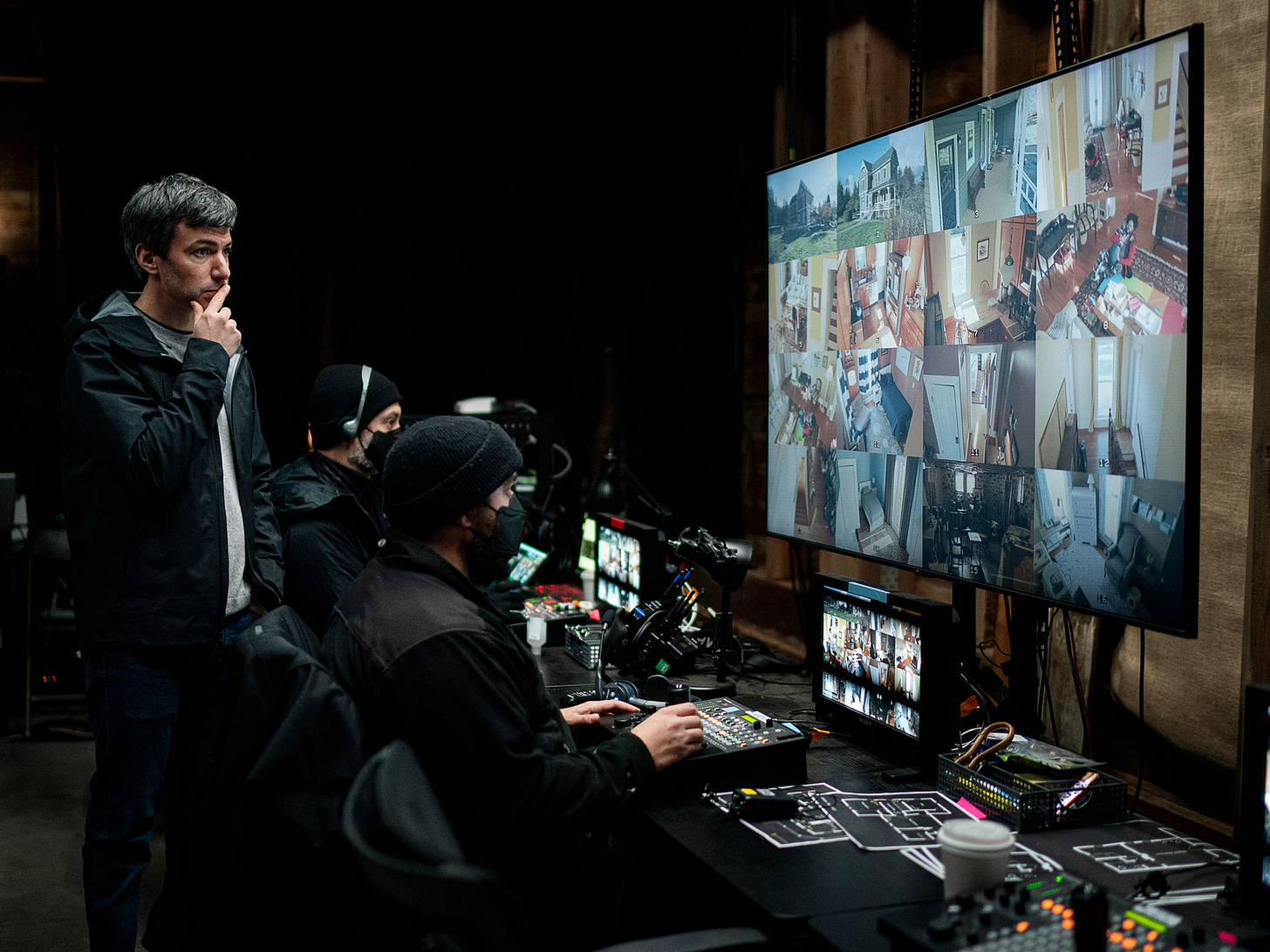It’s the middle of summer, readers, and I hope that the weather and the sun have been coloring your doorsteps, especially in lieu of the televisual colors we’d perhaps gotten used to watching during the heights of Emmy season this past spring.
It’s true: Even though the Emmy nominations have been announced, prodding us to check out those shows we’d meant to see and/or “heard good things about” but just hadn’t had the chance or interest to actually spend time with (ahem, Severance [my ‘Hot’ take here]), the annual post-springtime lull in dynamic television has hit — and hit big. I actually delayed publishing this new serving of Hot Tea one week, so that hopefully I could gather more interesting new content to share with you all.
Whether anything we try below will meet that mark, well, I suppose is more up to you, readers, than to me. Still, for this serving, here are my takes on the new in streaming media, including the return of two animated franchises, the briefly awaited closure of a melodrama, and the premiere of a dark miniseries (among others).
Enjoy! ☕️🫖
Black Bird (Series Premiere)
Apple TV+ • Drama • Crime and Punishment
Synopsis
A cock of the walk in local drug dealing reluctantly agrees to chaperone an enigmatic fellow inmate, when the FBI offers to commute his trafficking sentence in exchange for certain information on the final locations of the inmate’s supposed many victims.
My take
A cultural descendant of popular and acclaimed media including especially:
Oz (Fontana [creator], 1997-2003),
Mindhunter (Penhall [creator], 2017-2019),
The Wolf of Wall Street (Scorcese [dir.] & Winter [wri.], 2013), and
Mare of Easttown (Ingelsby [creator], 2021)
among others, Apple TV+’s new Black Bird is a fledgling not quite menacing enough (yet) to startle any modern Poe into a cowering ode about its lines or its plumage — but it’s not altogether ‘weak sauce.’
Straight off his failed attempt at an Oscar nomination for his performance in the Elton John biopic Rocketman (Fletcher [dir.] & Hall [wri.], 2019), Taron Egerton (back in notable physical form) leads the Black Bird cast as one of the two central characters in this story about a convicted drug- and arms- dealer who in the interest of shortening his own sentence sides with the FBI in order to pin down an apparent serial killer of young women in the American Midwest. The lines Egerton cuts with his character are visible, his acting training like a mattress tag showing when it should really be tucked safely in, but his technicals do allow for moments of sincere interest as he grapples with inhabiting the mind and body of a hyper-macho thug, closest in the canon to DiCaprio’s financial wolf Jordan Belfort and Gordon-Levitt’s (2013) Don Jon Martello. Unlike DiCaprio and Gordon-Levitt, however, Egerton alone is not enough of a reason for you to check out what is otherwise a mediocre story.
Fortunately for Egerton, the cryptic co-leading role — “co-leading” at least on paper — is being played suspiciously well enough by Paul Walter Hauser, to round out the series with the promise of vicious encounters between a lion and a snake, a competitive dyad intriguing enough that even Aesop might pick up his quill — again, at least on paper.
Greg Kinnear, an actor who I feel never really got enough due for his two absolutely excellent performances in Brooks and Andrus’ (1997) As Good as It Gets — my first retrospective here, on Hot Tea — and Dayton and Faris’ (2006) Little Miss Sunshine — another early Hot Tea retrospective — and Sepideh Moafi support, as respectively: the self-conscious detective focussed on Hauser’s character as the true culprit in the serial killings plaguing his region and the FBI agent who wields her wiles as a dominatrix would whips to shape up a reluctant protégé into a functioning undercover operative for her agency.
If the season turns out more than a handful of interesting twists or thrills, I’ll consider its relatively straightforward goals achieved.
Fly, Black Bird; fly — that is, if you can leave the nest.
Temperature check
Tepid
Stranger Things (Season 4 — Part 2)
Netflix • Drama • Paint by numbers
Synopsis
Rallying their forces, two separate halves of the same ragtag clan synchronize efforts to thwart the apocalyptic ends of a mythical psychological killer — o, and the U.S.S.R.
My take
Two episodes? Really, Netflix?? You bridged the Emmy eligibility season and made the world wait an entire month for two episodes?!
To say that my suspicions here were right would be almost too effortful a gloat for this trifle of a finale for me to even bother typing it. Why waste time on watching, readers, when you already know exactly what happens?
The best praise I can muster for this exercise in perfunctory completion is that it contrives an actually interesting premise for the next (and very last) season of this series: an unavoidable and literal rift through the lives of its characters.
Temperature check
Frigid
Westworld (Season 4 Premiere)
HBOMax • Sci-Fi • Vile bodies
Synopsis
A new world order surprises the memories of those who can recall the past.
My take
The days of a once innocent Western frontier are long gone now, aren’t they, readers? It’s been years since Westworld was a show that actually lived up to its name, and years also since it’s lived up to its once stellar quality. No longer is the show the proper treading ground of a heavyweight like Sir Anthony Hopkins. No, now only Thandie Newton survives as any common source of interest, excitement, admiration, and talent in the series.
Though after the series’ trenchant third season departure from prior tropes Westworld does make vague gestures at a return to form (e.g., with the introduction of a “Golden Age” park to the in-world theme park’s offerings), it’s “too little, too late” for me to care more than a jot about it. Westworld died a while ago, and now we’re really just staring at a corpse still being publicly dressed on the operating table.
Of course, with its big budget and technical bent, the show continues to demonstrate categorical excellence in production design, sound, and visual effects. Yet, how often does a show with only those skills to show for itself, bereft of any compelling drama in writing especially, shine on our screens?
I long for the days when the mystery that Ed Harris’ the Man in Black strove for years to solve still remained just out of reach, when the incipience of sentiment and memory in Evan Rachel Woods’ Dolores teased a sea change in the dynamics between humans and their robotic aids and companions, when human guests to the parks still had presence in the story…. Then the series was a potent seed, capable of sprouting into any flower and bearing any fruit. Then, I wanted to water and sun it. Then, we as an audience had an interest in its cultivation.
Now in the shruggery of its flaccid bloom I find myself asking, “How long will we go on this way?” How long?
Temperature check
Cold
Solar Opposites (Season 3)
Hulu • Animation • Absurdism by and beyond the book
Synopsis
The often crushing externalities of the chaotic drama characterizing the lives of a family of aliens on Earth finally, like comic boomerangs, wing back around to remind the family of its purpose.
My take
The core concept of Solar Opposites has always been a good one: a group of misfit outsiders is forced to live within a society they consider alien and bizarre by its many sudden and sharp contrasts with their own highly idiosyncratic culture and customs. It’s not a new premise; well regarded and popular shows such as Mork & Mindy (Marshall, McRaven, & Glauberg [creators], 1978-1982), The Nanny (Jacobson & Drescher [creators], 1993-1999), and most recently Schitt’s Creek (Levy & Levy [creators], 2015-2020) have all used it well to communicate the existential angst and comedic tension that comes from irony and social satire combined in a “fish out of water” narrative. For Solar Opposites, that premise has also been a jumping off point for absurdist eclecticisms. Indeed, perhaps the best part of the show has been one such eclecticism, a nugget that began as a small departure from the main storyline: the wall.
It’s this lifeblood of absurdism that continues to give Solar Opposites its greatest flare, now its third season on Hulu. The retrograde cultural passé of Malcolm Gladwell in the premiere episode and the other rabid pop-cultural bricolage throughout the season, plus the continued presence and exploration of the world inside the wall, represent the delights of the season, standing out particularly in four episodes (#3, 4, 8, and 9 for those curious) that contravene even the lack of expectations the series has trained us to have for any within-the-lines storytelling. It’s this kind of capacity to in a third season still rally a new frontier in outside-the-box narratives, that keeps me watching any show. Even if a few of the other episodes in the season are hemmed by a relatively by-the-book construction for what the show has shown itself to be over its prior two seasons, the more than small peeks at thoughtful violations of the show’s own internal rules to challenge and intrigue us in the audience fire an entertainment that is clearly still both vital and fun.
Collapsing into cosmic supernova? Hardly, but the starbursts we can see are brilliant.
Temperature check
Hot (just barely)
The Bob’s Burgers Movie
HBOMax / Hulu • Animation • Burger of the Day: “For Scent-a-mint-al Reasons”
Synopsis
The financial stress of a looming loan foreclosure provokes adventure for all members of the Belcher family, trying the faith of the bonds within their community.
My take
Unlike Solar Opposites whose regularly brave third season storytelling saved itself from an otherwise predictable fate, The Bob’s Burgers Movie is exactly in line with what we’d expect from the animated universe of the five Belcher characters, now twelve seasons into their lives on Fox and Hulu. Unfortunately for them and their writers, falling in line with expectations is still falling, or rather failing to deliver a compelling narrative.
It’s not that the film version of Bob’s Burgers (Bouchard [creator], 2011-Present) is bad outright; it’s more that it lacks any and all of the sharp wit or colorful inventiveness that have made the series so long-lived on network television. All the sharp corners here are rounded out, all the adventures themselves made relatively tranquil rides — indeed, the movie is its own “Mole Hill,” the sedate track-based ride that only small children, the elderly, and other daunted tremolos like Tina Belcher find at all thrilling at the Wonder Wharf. Anyone else will surely starve for the jolts of affection and surprise other rides offer.
I suppose that this is what happens when you let a burger sit too long before eating it.
Temperature check
Cold
The Rehearsal (Series Premiere)
HBOMax • Comedy • Prepare, prepare, prepare
Synopsis
An anxious and over-equipped student of human affairs takes it upon himself to intervene in heavy but everyday human drama, to benefit the players by rehearsal.
My take
A deadpan farce with an almost clinically disaffected narrator, Nathan Fielder’s new The Rehearsal is catnip for any among us who loved the pariah’s triangle of:
Joe Pera Talks with You (Pera [creator], 2018-2021),
Strangers with Candy (Colbert, Dinello, Sedaris, & Rouse [creators], 1999-2000), and
The Joy of Painting (Ross [creator], 1983-1994).
Part the eponymous “Rain Man” (Levinson [dir.], Morrow, & Bass [wri.], 1988) and part Lars von Trier specifically directing Dogville (2003), Fielder’s character in The Rehearsal prepares the viewer for only those occasionally cringe-worthy ruses of social misapplication that, frankly, each viewer out of the box either likes or dislikes as comedy.
If you reader be one of the many who called the given triangle your quaint, curious, and entertaining home, you then may be just the person who needs this new kind of social preparation.
Temperature check
Tepid (‘Hot’ to the in-group, ‘Cold’ to the visitors)









